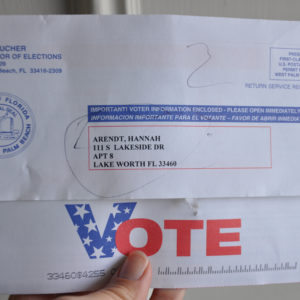An overlooked finding from the new Emerson poll is that fewer than 50 percent of Americans say they trust mail-in voting, As Emerson found:
“Within the coronavirus context and questions of safety with in-person voting in November, voters are not very comfortable changing their method of voting,” according to the poll. “Voters across the country generally trust their current voting process, with 55 percent trusting primarily in-person voting, compared with 20 percent who do not trust the current process.
“When asked about mail balloting, 47 percent said they would trust a national vote-by-mail process in November, while 31 percent lack trust in this system. When voters were asked about online balloting, only 33 percent said they would trust an online system, with 45 percent not trusting online voting in November’s election.”
Yes, mail-in balloting performed better than online voting, but 53 percent of voters still say they don’t trust it or they’re not sure. And that’s with both the media pushing mail-in balloting and the threat of coronavirus looming over the upcoming elections.
What most media outlets are unwilling to report is the repeated findings by bipartisan groups that mail-in ballots create a massive opportunity for voter fraud. That was the finding of the bipartisan Commission on Federal Election Reform, co-chaired by former President Jimmy Carter and former Secretary of State James Baker. “Absentee ballots remain the largest source of potential voter fraud,” according to their report.
In particular, Democrats like to combine all-mail voting with “ballot harvesting,” sending people out in the community to gather the mailed ballots, fill them out and deliver them to the polls, whether the specific person they were mailed to ever voted — or even new about the ballot — or not.
Is it a surprise that left-leaning organizations like the ACLU-NH and the League of Women Voters are pushing for putting ballots in our mailboxes?
There are also polls that show Americans support voting by mail, a reminder that the way polling questions are framed can have a significant impact on the results. Voters still say what they trust is showing up at the polling place and showing an ID.
The coronavirus threat may change that view temporarily, but there’s no evidence Americans will embrace anything different in the long run.

